RHI scandal: Hamilton outlines cost reduction plan
- Published
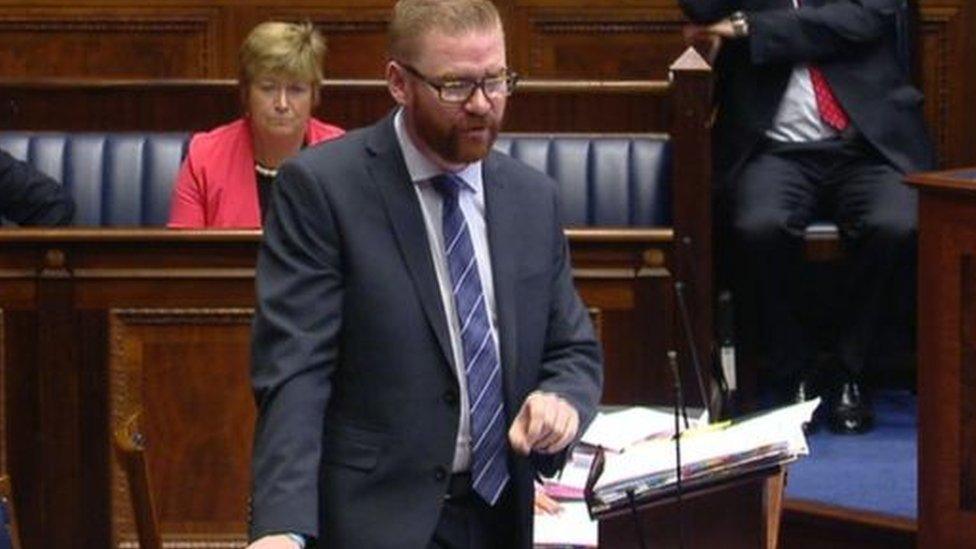
Simon Hamilton's plan has been formally submitted to the Department of Finance
DUP Economy Minister Simon Hamilton has given details of a plan to cut costs associated with the botched Renewable Heat Incentive (RHI) scheme.
He has sent a business case to Finance Minister Máirtín Ó Muilleoir outlying how he intends to tackle the projected £490m overspend.
The scheme was set up by former first minister Arlene Mrs Foster in 2012 when she was enterprise minister.
Its aim was to increase consumption of heat from renewable sources.
However, businesses received more in subsidies than they paid for fuel, and the scheme became heavily oversubscribed.
The plan by the economy minister has now been formally submitted to the Department of Finance for approval.
Mr Hamilton and Mr Ó Muilleoir held talks on the issue last week.

Analysis: BBC News NI's Business Correspondent Julian O'Neill
The BBC understands the plan involves a two-staged approach.
First, it would reduce the tariffs paid to around 1,800 people who got into the scheme before November 2015.
This would require an Assembly vote to change the tariffs from the new financial year starting in April.
Secondly, there would be a public consultation on a longer-term solution.
But there remains an acceptance within the Department for the Economy that any moves on tariffs could face a legal challenge.

It is understood that a significant number of RHI recipients have told the Department for the Economy they do not wish their names made public.
The department had written to them asking for views on their names being released.
Mrs Foster and Mr Hamilton have talked of wanting transparency about who benefited.
It is believed the department is taking legal advice on its options.
The failure of the political parties to find a resolution on how to investigate the failings in the scheme has led to a political crisis at Stormont.
Martin McGuinness resigned on Monday as deputy first minister in protest against the botched handling of the scheme and, after Mrs Foster refused to step aside while an investigation was held.
What happens now the deputy first minister has resigned?
Under Northern Ireland's power-sharing agreement, Mrs Foster loses her first minister role with the departure of Mr McGuinness.
The Sinn Féin MLA's decision to quit is likely to lead to a snap election.
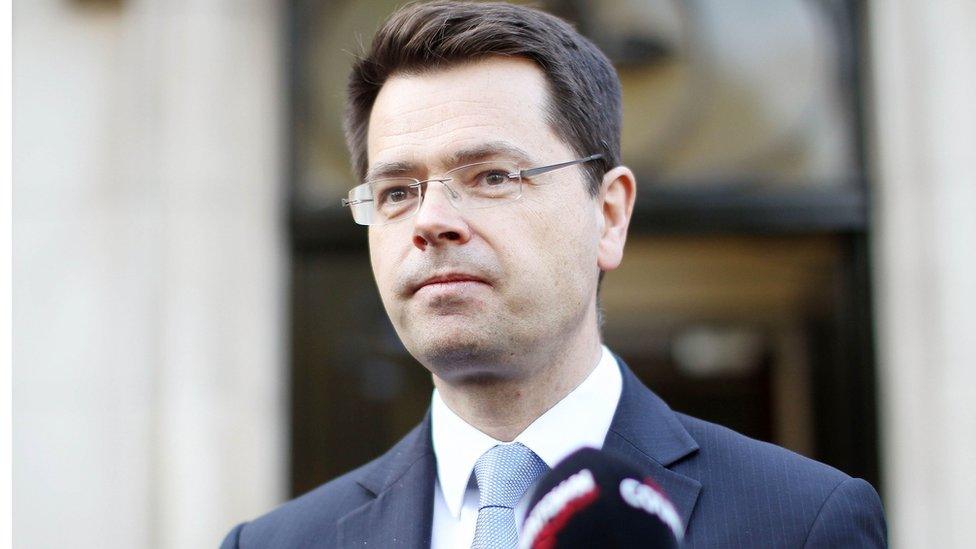
If Sinn Féin chose not to nominate a new deputy first minister, then the baton of power passes to James Brokenshire
The party has seven days to nominate a new deputy first minister, but is adamant it will not replace him.
If it chooses not to, then the baton would pass to Secretary of State James Brokenshire who would be legally obliged to call an election.
In an effort to avert such a move, the British and Irish governments have pledged to do what they can to resolve the crisis.
- Published11 January 2017
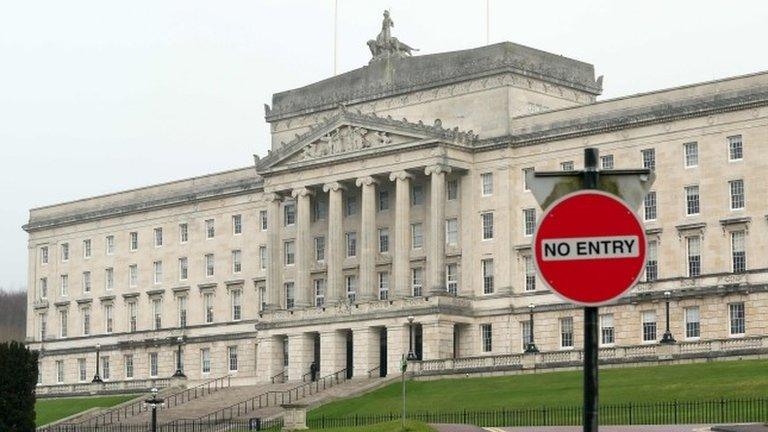
- Published10 January 2017
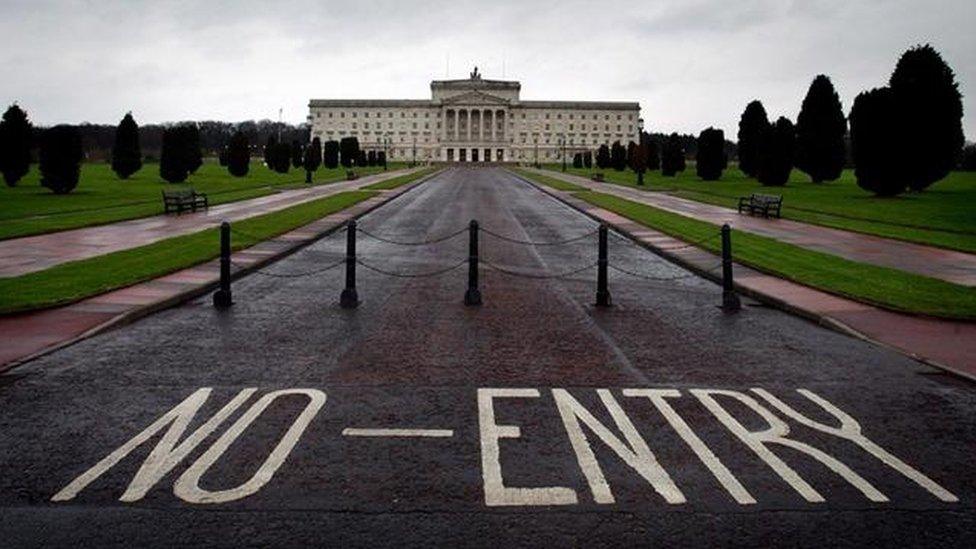
- Published7 March 2017
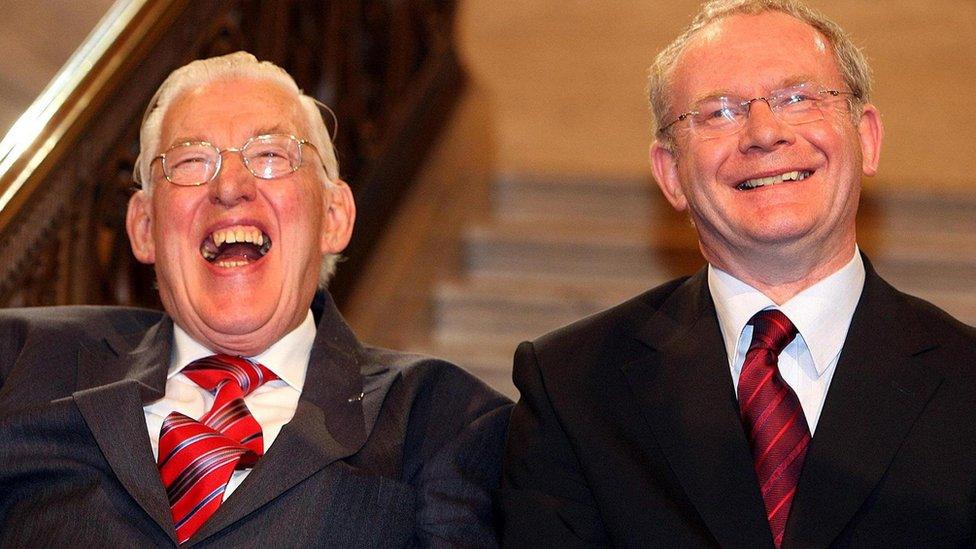
- Published10 January 2017

- Published9 January 2017
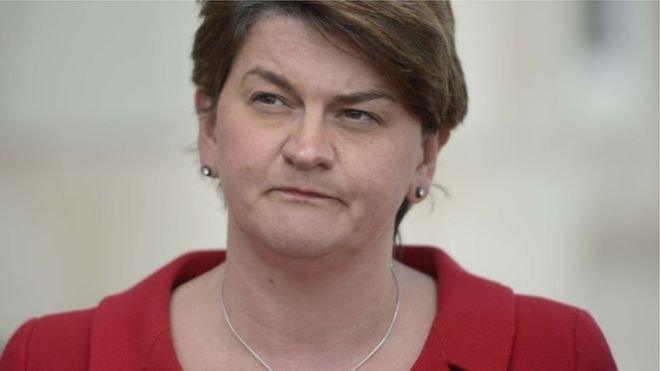
- Published10 January 2017

- Published23 October 2019

- Published19 December 2016
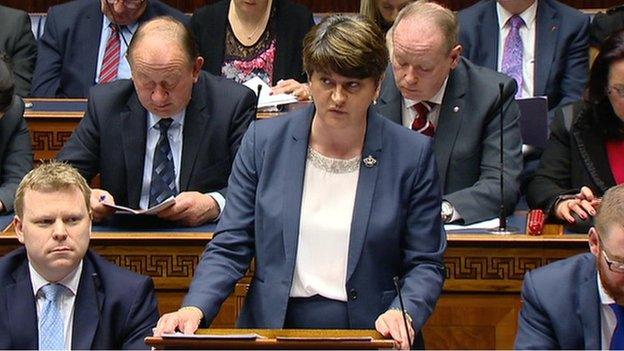
- Published7 November 2017
